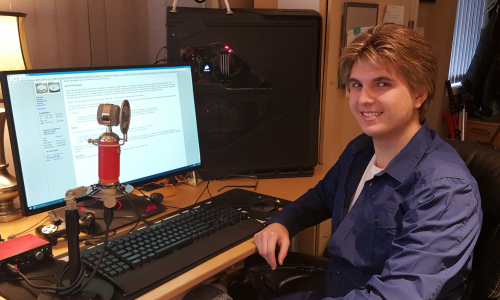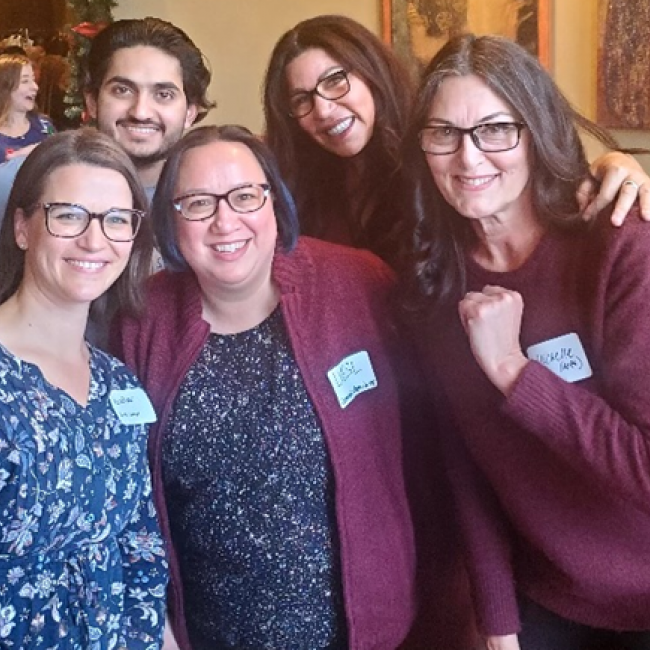
When I was told, I'd be speaking to high school students as part of my Co-op experience as an Engagement and Recruitment Assistant at SFU School of Communication, I knew I'd have to rely on my voice more than ever before. Irritatingly for some, I've always been a person unafraid of speaking publicly or using my voice; it's been my superpower since I was young. As a result, I was one of the few I knew who enjoyed giving presentations. Therefore, I never had to worry or second-guess myself regarding public speaking.
However, through my work term, I soon became aware that my public speaking skills were not something that was accustomed to everyone. This was made apparent when a young man approached me after a presentation and asked this question: "how did you become confident to public speak?" At that moment, I didn't have an answer, but now after taking some time to think about that question more in-depth, I have some solutions that could help any nervous speaker let their voice shine in any situation they may come up against.

When beginning to give workshops at high schools, I became painfully aware that once you've left high school, any "cool factor" has disappeared completely. Instead of trying to impress these moody teenagers and morph into the human embodiment of "how do you do, fellow kids," I did what I knew best: treat them like my equal. Rather than focus on the age gap between the students and me, I treated them as if I were talking to friends or individuals, I'd met a dozen times beforehand. The strategy here is to get comfortable with who you're speaking for; rather than focus on a room full of strangers, talk how you would if you were presenting for friends. This helps you relax and creates a more comforting environment for the audience, allowing the speaker and the crowd to feel more at ease.
When building my presentation, I added tidbits of my personality and interests so the audience could get to know me as a presenter. One way I tailor presentations is by adding my sense of humour. I would add jokes or anecdotes to my workshop to entertain the audience and become more relaxed. I was told once by someone close to me that you are your harshest critic and the hardest person to impress. I've used those words of wisdom to my advantage by adding my personality and interests to my presentation. That way, I can make myself feel calmer by speaking about things that I like and enjoy and resonating with the audience by having moments of comfort that don't take effort to talk about and help me become more comfortable in front of a crowd. Mine, for example, was talking about my love for RuPaul’s Drag Race when introducing myself as a speaker.

Hearing my own voice after a while can be grating. Your audience should be allowed to express their thoughts and ideas to add to the conversation. A two-minute discussion around a question can boost the energy in the room, and it also provides you a moment to sit with your thoughts, grab a drink of water and assess your following speaking points. Your audience may have significant matters to share, so encourage them to participate and use their points in your own examples. This shows that you're actively listening as well as interested in what others have to say.
Public Speaking is challenging, and I applaud anyone who can speak in front of a crowd because it takes a lot of courage. Everyone's methods are different, and everyone has a different comfort zone. These tips helped me when speaking to audiences to sell me as a speaker and make me feel comfortable. I hope these pointers will encourage you to try new methods of addressing crowds and find newfound confidence within yourself.
"All the worlds a stage" - William Shakespeare.






























